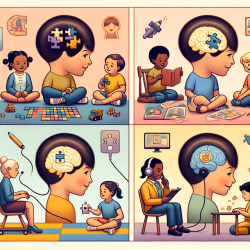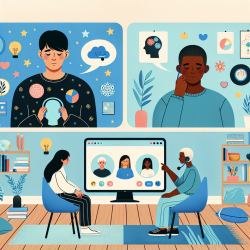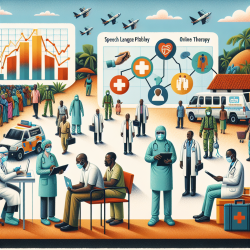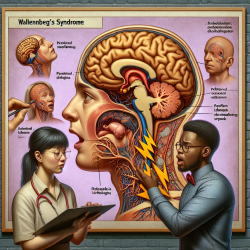Digital technologies have shown tremendous potential in supporting individuals with autism spectrum disorder (ASD). However, the accessibility and implementation of these technologies in low- and middle-income countries (LMIC) remain a significant challenge. A recent study, "The Digital Divide in Technologies for Autism: Feasibility Considerations for Low- and Middle-Income Countries," provides valuable insights into this issue. This blog aims to distill the key findings of this study and offer practical advice for practitioners looking to improve their skills and outcomes for children with autism in LMIC settings.
Understanding the Digital Divide
The World Bank defines the "digital divide" as the gap in access to digital technologies between high-income countries (HIC) and LMIC. This divide is particularly concerning in the context of autism, where early diagnosis and intervention are crucial. According to the study, 95% of individuals with autism live in LMIC, where access to electricity, the internet, and digital devices is often limited.
Emerging Technologies for Autism
The study evaluated six emerging technologies for autism, focusing on their feasibility in LMIC contexts:
- Personal Computers (PCs)
- Robotics
- Virtual Reality (VR)
- Shared Active Surfaces (SAS)
- Sensing Technologies
- Mobile and Smartphone Technologies
Personal Computers
PCs have been used in autism interventions since the early 1970s. They offer various applications, from early identification to rehabilitation. Online platforms and web-based courses can provide parents and professionals with essential tools and training. However, PCs are less accessible in LMIC due to cost and infrastructure limitations.
Robotics
Robotics have shown promise in increasing engagement and attention in children with autism. However, their high cost and need for skilled operators make them less feasible for widespread use in LMIC.
Virtual Reality
VR technologies offer realistic, repeatable environments for teaching essential life skills. Despite their potential, the high cost and infrastructure requirements limit their feasibility in LMIC.
Shared Active Surfaces
SAS technologies can enhance social interaction among children with autism. However, their high cost and susceptibility to damage make them impractical for widespread use in LMIC.
Sensing Technologies
Sensing technologies, such as smartwatches, can monitor symptoms and behaviors in children with autism. While promising, these technologies are often expensive and require additional software and skilled professionals for data analysis.
Mobile and Smartphone Technologies
Mobile and smartphone technologies are the most promising for LMIC due to their relatively low cost and widespread availability. Simple features like task lists and calendars can significantly improve daily independence for individuals with autism. Mobile apps can provide early screening and intervention tools, and social media platforms can facilitate social engagement.
Feasibility Considerations
The study evaluated the feasibility of these technologies based on four implementation constructs: accessibility, affordability, acceptability/cultural appropriateness, and scalability.
- Accessibility: Mobile technologies scored the highest in accessibility due to their widespread use and familiarity, even in low-resource settings.
- Affordability: Mobile and smartphone technologies are the most affordable, making them the most feasible for LMIC.
- Acceptability/Cultural Appropriateness: Mobile technologies are generally more acceptable and culturally appropriate, as they are already integrated into daily life in many LMIC.
- Scalability: Mobile technologies have the greatest potential for scalability, allowing for broad implementation across various settings.
Practical Recommendations for Practitioners
Based on the study's findings, here are some practical recommendations for practitioners:
- Leverage Mobile Technologies: Utilize mobile apps and smartphones for early screening, intervention, and social engagement. These tools are cost-effective and widely accessible.
- Focus on Training: Provide training for parents and caregivers on using mobile technologies effectively. Online courses and mobile apps can be valuable resources.
- Engage with the Community: Work closely with local communities to ensure that the technologies used are culturally appropriate and accepted. This will improve the overall effectiveness of interventions.
- Advocate for Infrastructure Improvements: While immediate changes may be challenging, advocating for better internet and electricity infrastructure can have long-term benefits for autism interventions in LMIC.
To read the original research paper, please follow this link:
The Digital Divide in Technologies for Autism: Feasibility Considerations for Low- and Middle-Income Countries.










